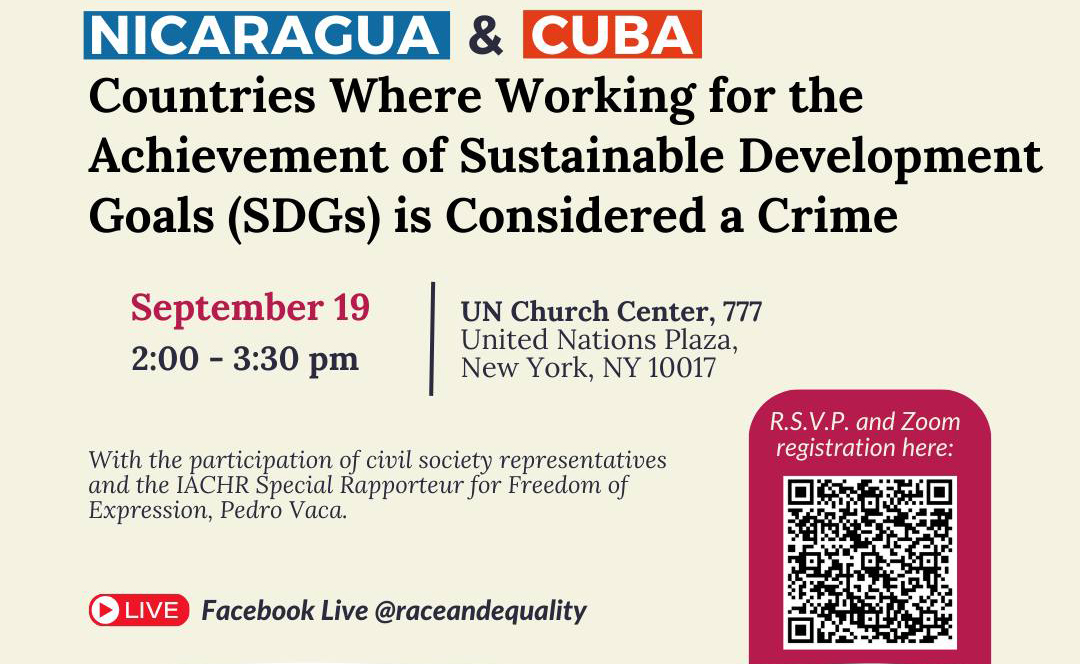Both Nicaragua and Cuba are signatories to the International Covenant on Civil and Political Rights (only Nicaragua has ratified it). As UN members, both countries are obliged to respect the principles, values and rights proclaimed in the Universal Declaration of Human Rights, and, according to the Declaration on Human Rights Defenders, should provide support and protection to human rights defenders in the context of their work. And both have committed to implementing the 2030 Agenda. And yet, despite these commitments, the governments of Nicaragua and Cuba continue to regularly violate the rights and ability of human rights defenders to carry out their work.
In Nicaragua, the government continues to “unduly limit the space of the country’s civic and democratic spaces, increasing its control over institutions and public spaces, and restricting activities by individuals and groups with dissident voices,” according to a report from the Office of the United Nations Commissioner for Human Rights, presented on September 12, 2023.
Arbitrary detentions, a documented count of 89 cases of political dissidents subjected to detainment and torture, the revocation of Nicaraguan nationality for a minimum of 316 citizens, and at least 27 instances of Nicaraguans being barred from reentry due to immigration bans represent only a fraction of the violations committed by the Nicaraguan government against individuals attempting to exercise their right to advocate for human rights.
In Cuba, over 700 people continue to be held in detention following their participation in the historic July 11, 2021 protests, when thousands of Cuban citizens took to the streets to call out their country’s deepening social, political, and economic crisis. The situation has since deteriorated further with a surge in arbitrary detentions, short-term disappearances, internet disruptions, travel restrictions, and the forced exile of activists, artists, and human rights defenders.
The new Cuban Penal Code and the recently approved Social Communication Law have compounded the extent of repression and harassment on the island, driving hundreds of Cubans to risk their lives fleeing their country. The International Organization for Migration estimates that in 2022 alone, some 150 Cuban people drowned while attempting to reach the United States.







